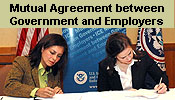
Search
Info Updates
National Threat Advisory
Elevated
![]()
Significant Risk of Terrorist Attacks
Report Suspicious Activity:
1-866-DHS-2-ICE1-866-347-2423
Information for families of ICE detainees:
Contact InformationInternational Students
SEVP I-17 Frequently Asked Questions
2. SEVP certification basics
-
2.1 What is an SEVP-certified school?
2.2 What is SEVP certification?
2.3 What regulations govern SEVP certification?
2.4 What schools are eligible for SEVP certification to enroll F nonimmigrants?
2.5 What schools are eligible for SEVP certification to enroll M nonimmigrants?
2.6 What schools are eligible for SEVP certification to enroll both F and M nonimmigrants?
2.7 What schools are ineligible for SEVP certification?
2.8 What are the criteria for SEVP certification?
2.9 If my school had previous approval from the Immigration and Naturalization Service to enroll nonimmigrant students, do we still have to get SEVP certification?
2.10 What does it mean to a school to have SEVP certification?
2.1 What is an SEVP-certified school?
An SEVP-certified school is a college, university, seminary, conservatory, high school, private elementary school, other academic or vocational institution, or language training program in the United States that has applied for and received certification.
2.2 What is SEVP certification?
Certification is the process schools go through to receive authorization from DHS to enroll F or M nonimmigrants. Within U.S. Immigration and Customs Enforcement (ICE), SEVP approves schools that desire to enroll nonimmigrant students, or withdraws that approval. (Note: Certification does not pertain to exchange visitor programs, which are authorized to enroll J nonimmigrants as exchange visitors by the Department of State through its verification process.)
2.3 What regulations govern SEVP certification?
8 CFR 214.3 governs the certification process. It can be found at http://uscis.gov/lpBin/lpext.dll/inserts/slb/slb-1/slb-10281/slb-16615/slb-19663?f=templates&fn=document-frame.htm#slb-8cfrsec2143
2.4 What schools are eligible for SEVP certification to enroll F nonimmigrants?
The following schools are considered to be academic institutions and may be approved for attendance by nonimmigrant students under section 101(a)(15)(F)(i) of the Act:
- A college or university (i.e., an institution of higher learning which awards recognized bachelor's, master's doctor's or professional degrees)
- A community college or junior college which provides instruction in the liberal arts or in the professions and which awards recognized associate degrees
- A seminary
- A conservatory
- An academic high school
- A private elementary school
- An institution which provides language training, instruction in the liberal arts or fine arts, instruction in the professions, or instruction or training in more than one of these disciplines
2.5 What schools are eligible for SEVP certification to enroll M nonimmigrants?
The following schools are considered to be vocational or nonacademic institutions and may be approved for attendance by nonimmigrant students under section 101(a)(15)(M)(i) of the Act:
- A community college or junior college which provides vocational or technical training and which awards recognized associate degrees
- A vocational high school
- A school that provides vocational or nonacademic training other than language training
2.6 What schools are eligible for SEVP certification to enroll both F and M nonimmigrants?
A school may be approved for attendance by nonimmigrant students if it has both instruction in the liberal arts, fine arts, language, religion, or the professions and vocational or technical training. In that case, a student whose primary intent is to pursue studies in liberal arts, fine arts, language, religion, or the professions at the school is classified as a nonimmigrant under section 101(a)(15)(F)(i) of the Act. A student whose primary intent is to pursue vocational or technical training at the school is classified as a nonimmigrant under section 101(a)(15)(M)(i) of the Act.
2.7 What schools are ineligible for SEVP certification?
The following may not be approved for attendance by foreign students:
- Home schools
- Pre-school and/or day care institutions
- Public elementary or junior high schools (grades K-8)
- Schools whose programs are primarily distance education or online (i.e. Internet based)
- Adult education program, if the adult education program is funded in whole or in part by a grant under the Adult Education and Family Literacy Act, or by any other federal, state, county or municipal funding
- Flight schools that are not Part 141 or Part 142 certified by the Federal Aviation Administration
2.8 What are the criteria for SEVP certification?
To be eligible for approval, the petitioning school must establish that it:
- Is a bona fide school
- Is an established institution of learning or other recognized place of study;
- Possesses the necessary facilities, personnel, and finances to conduct instruction in recognized courses; and,
- Is, in fact, engaged in instruction in those courses.
Schools must be engaged in instruction (i.e., operational) when they file their petition, not at some point before final adjudication.
For Institutions applying for M (vocational or technical) certification, only programs that meet for a minimum of 18 hours weekly if the program is primarily classroom instruction, or 22 hours weekly if the program is primarily lab work are eligible for approval.
For English language school programs applying for certification, only programs that meet for a minimum of 18 hours weekly, if the program is primarily classroom instruction, or 22 hours weekly if the program is primarily lab work are eligible for approval.
Yes. All schools, whether or not they had approval prior to January 1, 2003 are required to receive SEVP certification if they want to enroll nonimmigrant F or M students.
2.10 What does it mean to a school to have SEVP certification?
Once certified, the school has access to SEVIS and may issue Forms I-20, Certificate of Eligibility for Student Status, to prospective students. To maintain certification, the school must comply with SEVP policies, as well as recordkeeping and reporting requirements stipulated in 8 CFR 214.3.






